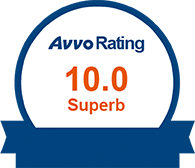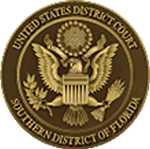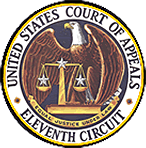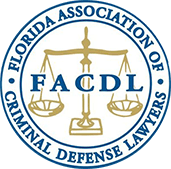
Your Case Deserves Immediate Attention - Call Hubbs Law Today
Possession with Intent to Sell
Speak to a Miami Drug Crimes Attorney about Your Rights
If you or your loved one has been charged with drug possession with intent to sell, you should contact an experienced drug crimes defense attorney in Miami right away. A conviction for possession with intent to sell comes with severe penalties, including jail/prison time, steep fines, driver’s license suspension, and probation. You could also face harsh social consequences as well, as a criminal conviction will go on your public record.
Contact Hubbs Law Firm online or by phone at (305) 570-4802 today for a free, confidential consultation with one of our experienced trial lawyers. Se habla español.
Possession with Intent to Sell Charges in Florida
Hundreds of prescription drugs (including Xanax, Lortab, and OxyContin, to name a few) and dozens of so-called "street" drugs (including marijuana, cocaine, and heroin, amongst others) are considered controlled substances. The Florida Statutes, Chapter 893.13(2)(a) details how the government controls these substances, not only by criminalizing their possession, sale, and trafficking but also the intent to sell, manufacture, or deliver them.
Intent to Sell Charge
Under Florida law, except for small amounts of marijuana or medicine prescribed by a doctor, the mere possession of a controlled substance in Florida is a felony. Possession of a controlled substance with intent to sell is an elevated charge from simple possession, with more severe penalties if convicted.
These cases often hinge on not only the determination of possession but also the determination of "intent." In their zeal to make an arrest, law enforcement officers sometimes exaggerate or misinterpret the concept of intent or the evidence at the scene. Prosecutors then proceed with serious charges that may have life-changing consequences if a person is convicted of possession with intent to sell.
Our Firm Can Defend Your Rights & Your Future
Hubbs Law Firm defends clients throughout the greater Miami area who were arrested on a charge of possession of a controlled substance, narcotics, or drugs with intent to sell. Our founding attorney, E.J. Hubbs, is Board Certified in Criminal Trial Law by the Florida Bar. A Board Certified attorney has been evaluated by the Florida Bar for experience and competency within a specific area of law and determined to be both professional and ethical in the practice of law.
Both E.J. and Erika Hubbs understand Florida's drug and controlled substance laws. They put their extensive knowledge to use by aggressively defending clients who are accused of these types of crimes.
How Possession with Intent to Sell Charges Are Prosecuted
Under Title XLVI, Chapter 893.13(2)(a) of the Florida Statutes, "a person may not sell, manufacture, or deliver or possess with intent to sell, manufacture, or deliver a controlled substance."
A prosecutor may pursue either the simple possession charge (Fla. Stat. Ann. § 893.13(6)) or the elevated possession with intent to sell charge, but the prosecutor must prove intent to sell beyond any reasonable doubt at trial. Faced with this dilemma, prosecutors sometimes drop the intent to sell charge when an aggressive attorney challenges the intent charge.
Factors that May Indicate Intent to Sell a Controlled Substance
If a law enforcement officer finds that a person is in illegal possession of a controlled substance, the officer then must determine if a person possessed the drugs or narcotics with the intent to sell all or part of them.
Many factors may lead to the elevated charge of possession of a controlled substance with intent to sell, including any of the following:
- Verbal or written statements by the person in possession that he or she had the intent to sell the drugs
- Type of drug possessed
- Amount or quantity of drugs possessed
- Location where drugs were possessed
- Way in which the drugs are packaged (such as small amounts, individually wrapped)
- Presence of drug paraphernalia used by dealers, such as scales or plastic bags
- Presence of large amounts of cash in close proximity to the drugs
- Presence of ledgers recording drug transactions or other records of drug-related activities
- Presence of a gun, firearm, or other weapons
A prosecutor will often build an intent-to-sell case based on these factors, but if no factors are present, proving intent may be difficult.
A person under suspicion of possession with intent to sell should exercise his or her right to remain silent under the Fifth Amendment to the U.S. Constitution and allow a criminal defense attorney to answer police questions. A skilled attorney may know of ways to explain many of these factors, or the lawyer may be able to file a motion seeking to dismiss the charge of intent to sell.
Search & Seizure in Intent to Sell Cases
The Fourth Amendment to the U.S. Constitution protects people from unreasonable searches or seizures. Law enforcement must have "probable cause" to initiate a search.
Besides questioning the "intent" aspect of a possession with intent to sell case, a knowledgeable attorney may be able to examine the way the search was conducted or how the drugs were discovered. If the search was not valid or if any legal mistakes occurred during the search, evidence obtained in the search may be excluded by the court. Without any evidence of possession, the charge of possession with intent to sell will be dismissed.
Penalties for Possession of a Controlled Substance with Intent to Sell in Florida
Florida's penalties for possession of a controlled substance with intent to sell depend on the type and amount of a controlled substance seized. For the intent to sell marijuana, a third-degree felony is usually charged. For the intent to sell cocaine, a second-degree felony is usually charged. The intent to sell prescription drugs could be either degree of these felonies, depending on the type and amount.
Small amounts of the most dangerous and addictive controlled substances—sometimes a gram or less—may result in a lengthy prison sentence if a person intended to sell some or all of the drugs.
The penalties for felonies related to possession with intent to sell include:
- Third-Degree Felony: A prison sentence of up to five years and/or a fine of up to $5,000
- Second-Degree Felony: A prison sentence of up to 15 years and/or a fine of up to $10,000
Additional penalties may include probation, community service, drug evaluation, counseling and treatment, random drug testing and a lengthy driver's license suspension. Convicted felons also lose the right to vote or own a gun unless granted clemency after release from prison.
A convicted felon may also find that educational, employment, and housing opportunities become less abundant. In addition, if you are not a United States citizen, a conviction for an offense related to a controlled substance violation will result in deportation from the U.S., unless certain exceptions apply.
Let Our Miami Drug Crime Attorneys Help
If you were charged in Miami or Miami-Dade County with possession with the intent to sell, manufacture, or deliver drugs, narcotics, or a controlled substance, you are facing a felony charge and should discuss your case with a qualified criminal defense attorney.
At Hubbs Law Firm, your initial consultation is free and offers a chance for our attorneys to explain your charges and the potential penalties that may be imposed if you are convicted. We can discuss possible defense strategies and help you understand the entire process.
Our Miami drug crime defense lawyers strive to avoid a conviction in every case. We will do our best to investigate your case, including the circumstances of a search for a controlled substance, as well as how the alleged intent to sell was determined. In many cases, we are able to negotiate a reduction in charges and, sometimes, we are able to convince the court to dismiss the charges due to lack of evidence.
Call Hubbs Law Firm today at (305) 570-4802 to schedule a day and time for your free initial consultation.
Additional Resources
- Florida Statutes, Title XLVI, Chapter 893, § 893.13 – Read the current Florida laws about the prohibited acts and penalties related to drug offenses, including possession of a controlled substance with intent to sell at § 893.13(2)(a).
- Drug Enforcement Administration (DEA)– The DEA is the primary federal agency tasked with investigating federal drug crimes. Click on this link for information on the agency, press releases, and information on how to leave a tip of suspected drug crimes.
- Miami-Dade Police Department (Narcotics Bureau) - The Narcotics Unit with the Miami-Dade Police Department handles state investigations of drug crimes in Miami-Dade County.
- City of Miami Police Department (Narcotics)- The Narcotics Unit with the City of Miami Police Department handles state investigations of drug crimes in the city of Miami.
- Florida Department of Law Enforcement (FDLE)- Click here to see statistics for drug and other crimes compiled by FDLE.

Attorneys E.J. & Erika Hubbs
As professional Miami criminal defense attorneys, we take every case personally give every client the deliberate care it deserves. Our clients become part of our family and we fight relentlessly for their rights. Read more about us to find out how we can help you.

-
He is very knowledgeable, and he will fight to clear your name.
J Multidor -
I do not have enough praise for Erika and Eric.
Zoe Gorospe -
She is very thorough and treats clients like family.
Sports Supernova














